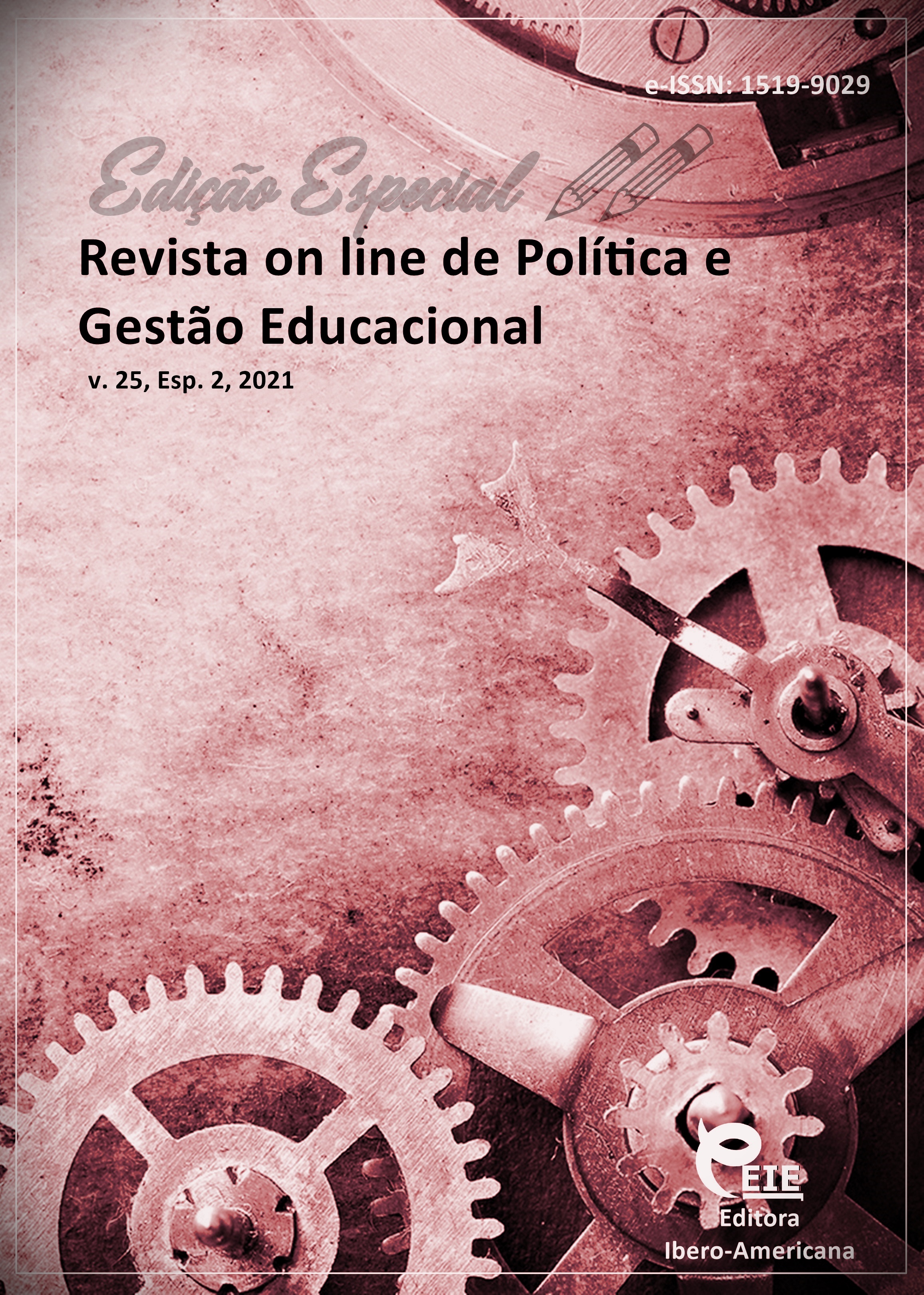Features of the work organization at the main stages on the project in the primary classes
DOI:
https://doi.org/10.22633/rpge.v25iesp.2.15269Keywords:
Project activity, Junior student, Stages of work on a project, Teacher activity, Student activityAbstract
The main aim of the article is to analyze the main stages of work on the project, characterizes the activities of the teacher and student at these stages. The basis of the project activity is the development of students' cognitive skills, the ability to independently design their knowledge and navigate the information space, the development of critical thinking; an idea is laid that constitutes the essence of the concept of "project", its pragmatic focus on the result, which is obtained when solving a particular practically or theoretically significant problem. This result can be seen, comprehended, applied in real practice. To achieve such a result, it is necessary to teach children to think independently, find and solve problems, using knowledge from different areas for this purpose, the ability to predict the results and possible consequences of different solutions, the ability to establish cause-and-effect relationships. To accomplish the goal of the study, several primary stages of work on a project are taken into account, including problematization, goal-setting, planning, implementation, presentation, and reflection. In conclusion, it can be inferred that the application of the project method in the classroom in primary school does not supplant the classroom system but complements, arranges, and extends it.
Downloads
References
ABYKANOVA, B. et al. Formation of communicative competence of students in the information educational environment of an urban school. Ad Alta Journal of Interdisciplinary Research, v. 10, n. 1, p. 89-92, 2020a.
ABYKANOVA, B. et al. Professional competencies and methods for their formation in the university. Ad Alta Journal of Interdisciplinary Research, v. 10, n. 1, p. 59-62, 2020c.
ABYKANOVA, B. et al. The use of modern information technologies in the educational process. Ad Alta Journal of Interdisciplinary Research, v. 10, n. 1, p. 37-40, 2020b.
ALYABUSHEVA, G. V. The development of the cognitive interests of younger students in project activities. Moscow, 2011.
KAZAKHSTAN. Law of the Republic of Kazakhstan dated July 27, 2007 No. 319-III. On Education with amendments and additions as of December 4, 2015. Republic of Kazakhstan, 27 July 2007.
KAZAKHSTAN. State compulsory standard of secondary education (primary, basic secondary, general secondary education). pproved by the Resolution of the Government of the Republic of Kazakhstan dated August 23, 2012 No. 1080 (GOSO RK 1.4.002-2012). Republic of Kazakhstan, 23 Aug. 2012.
KOLESNIKOVA, I. A.; GORCHAKOVA-SIBIRSKAYA, M. P. Pedagogical design. Moscow: Publishing Center "Akademiya", 2005.
KRAUSE, I. G. The method of projects as one of the directions for the development of key competencies of younger students. Creative pedagogy, n. 3, 2013.
LI, A. et al. Socio-psychological profile of a person exposed to suicidal behavior. International Journal of Psychology, n. 51, 2016.
LI, Y., YESKENDIROVA A., SARDAROVA ZH. ET AL. Psychological features of decision-making policy in a conflict situation among university employees. International Journal of Psychology, n. 51, p.1086-1089, 2016.
POLAT, E. S et al. New pedagogical and information technologies in the education system. Moscow: Publishing Center "Akademiya", 2005.
SELEVKO, G. K. Encyclopedia of educational technologies. Moscow: Research Institute of School Technologies, 2006.
Published
How to Cite
Issue
Section
License
Copyright (c) 2021 Revista on line de Política e Gestão Educacional

This work is licensed under a Creative Commons Attribution-NonCommercial-ShareAlike 4.0 International License.
Manuscritos aceitos e publicados são de propriedade da Revista on line de Política e Gestão Educacional. É vedada a submissão integral ou parcial do manuscrito a qualquer outro periódico. A responsabilidade do conteúdo dos artigos é exclusiva dos autores. É vedada a tradução para outro idioma sem a autorização escrita do Editor ouvida a Comissão Editorial Científica.











